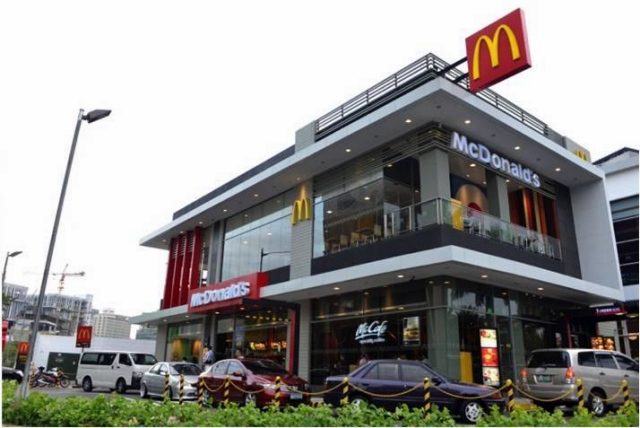SUMMARY
This is AI generated summarization, which may have errors. For context, always refer to the full article.

MANILA, Philippines – Diners at McDonald’s Philippines might soon pay a little more to quench their thirst, after the government decided to raise taxes on sugar-sweetened beverages, including soda.
Golden Arches Development Corporation (GADC), which holds the exclusive franchise to operate McDonald’s in the Philippines, said it is thinking of ways to balance the impact of the newly-enacted tax on sugar-sweetened beverages on its business and its customers.
“We may have to raise beverage prices….What we are trying to do is balance everything out. We continue to provide a lot of value for our customers,” GADC president and chief executive officer Kenneth Yang told reporters on the sidelines of a launch in Taguig City last Friday, January 12.
There are 547 McDonald’s stores in the Philippines as of November 2017, data showed.
On January 1 this year, the government started implementing the Tax Reform for Acceleration and Inclusion (TRAIN) law, which reduced personal income taxes but increased taxes on cars, tobacco, sugar-sweetened beverages, and fuel.
Under the TRAIN law, drinks with high fructose corn syrup, like most soda brands, are now taxed P12 per liter.
For drinks using sugar and artificial sweeteners, a P6-per-liter tax has been imposed. (READ: EXPLAINER: How the tax reform law affects Filipino consumers)
But the law excludes all kinds of milk, natural fruit juices, vegetable juices, and medically-indicated beverages from the sugar-sweetened beverage tax.
Instant coffee is also exempt from the tax, being one of the most consumed products of ordinary Filipinos.
Yang thinks the impact of the sugar-sweetened beverage tax will definitely be felt by GADC and McDonald’s customers.
“We’ll be affected by the sugar beverage tax. There might be some resistance [from customers], but we’ll eventually be okay,” he told reporters.
The Philippines is the latest among countries that have introduced sugary drink tax as an effort to increase revenues and fight obesity. Other countries include France, Hungary, and Ireland.
Denmark introduced sugary drink tax in the 1930s, but repealed it in 2014, in an effort to create more jobs and help its local economy.
The Philippines’ TRAIN law is just the 1st of 5 tax reform packages seen to boost state revenues and make the tax system “fairer and simpler.”
Sought for comment, tycoon Manuel Pangilinan said most companies will likely notice.
“All of us, all the companies will be affected in some shape or form, but I don’t think the effect would be significant,” Pangilinan told reporters during Friday’s event.
Pangilinan heads infrastructure conglomerate Metro Pacific Investments Corporation, which is the parent firm of Manila Electric Company (Meralco).
Meralco earlier announced it would likely increase electricity rates due to the tax reform law. – Rappler.com
Add a comment
How does this make you feel?
There are no comments yet. Add your comment to start the conversation.